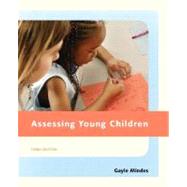
|
2 | (28) | |||
|
4 | (1) | |||
|
5 | (2) | |||
|
7 | (1) | |||
|
8 | (9) | |||
|
|||||
|
|||||
|
|||||
|
|||||
|
17 | (7) | |||
|
|||||
|
|||||
|
|||||
|
24 | (6) | |||
|
30 | (28) | |||
|
31 | (5) | |||
|
|||||
|
|||||
|
|||||
|
36 | (11) | |||
|
|||||
|
|||||
|
|||||
|
|||||
|
|||||
|
|||||
|
47 | (2) | |||
|
49 | (2) | |||
|
51 | (1) | |||
|
52 | (6) | |||
|
58 | (40) | |||
|
59 | (35) | |||
|
|||||
|
|||||
|
|||||
|
|||||
|
|||||
|
|||||
|
|||||
|
|||||
|
94 | (4) | |||
|
98 | (30) | |||
|
100 | (1) | |||
|
100 | (1) | |||
|
101 | (3) | |||
|
|||||
|
|||||
|
|||||
|
|||||
|
104 | (4) | |||
|
108 | (5) | |||
|
|||||
|
|||||
|
|||||
|
113 | (4) | |||
|
117 | (3) | |||
|
120 | (4) | |||
|
124 | (4) | |||
|
128 | (32) | |||
|
130 | (2) | |||
|
|||||
|
|||||
|
|||||
|
132 | (5) | |||
|
|||||
|
|||||
|
|||||
|
137 | (6) | |||
|
|||||
|
|||||
|
|||||
|
|||||
|
143 | (1) | |||
|
144 | (12) | |||
|
|||||
|
|||||
|
|||||
|
|||||
|
|||||
|
|||||
|
|||||
|
|||||
|
156 | (4) | |||
|
160 | (30) | |||
|
161 | (1) | |||
|
162 | (4) | |||
|
166 | (3) | |||
|
169 | (4) | |||
|
173 | (1) | |||
|
174 | (2) | |||
|
176 | (3) | |||
|
179 | (1) | |||
|
180 | (2) | |||
|
182 | (2) | |||
|
184 | (1) | |||
|
185 | (5) | |||
|
190 | (36) | |||
|
191 | (1) | |||
|
192 | (1) | |||
|
193 | (3) | |||
|
196 | (11) | |||
|
|||||
|
|||||
|
|||||
|
|||||
|
207 | (1) | |||
|
207 | (6) | |||
|
|||||
|
|||||
|
|||||
|
213 | (1) | |||
|
214 | (4) | |||
|
|||||
|
218 | (3) | |||
|
221 | (5) | |||
|
226 | (32) | |||
|
227 | (1) | |||
|
227 | (2) | |||
|
229 | (1) | |||
|
230 | (1) | |||
|
231 | (22) | |||
|
253 | (5) | |||
|
258 | (26) | |||
|
259 | (8) | |||
|
267 | (5) | |||
|
|||||
|
|||||
|
|||||
|
|||||
|
272 | (2) | |||
|
274 | (4) | |||
|
|||||
|
|||||
|
278 | (1) | |||
|
|||||
|
279 | (1) | |||
|
280 | (4) | |||
|
284 | (28) | |||
|
285 | (1) | |||
|
286 | (1) | |||
|
|||||
|
|||||
|
287 | (1) | |||
|
|||||
|
288 | (1) | |||
|
289 | (11) | |||
|
|||||
|
|||||
|
|||||
|
|||||
|
|||||
|
|||||
|
300 | (6) | |||
|
|||||
|
|||||
|
|||||
|
|||||
|
|||||
|
306 | (2) | |||
|
|||||
|
308 | (4) | |||
|
312 | (42) | |||
|
313 | (1) | |||
|
314 | (1) | |||
|
315 | (15) | |||
|
|||||
|
|||||
|
|||||
|
|||||
|
|||||
|
330 | (4) | |||
|
|||||
|
334 | (7) | |||
|
341 | (6) | |||
|
|||||
|
|||||
|
347 | (1) | |||
|
348 | (1) | |||
|
349 | (1) | |||
|
349 | (5) | |||
| Appendix A Self-Assessment Pretest Associated with Terms to Know | 354 | (5) | |||
| Appendix B Child Development Chart for Typical Development | 359 | (5) | |||
| Appendix C Selected Early Childhood Tests to Consider for Use in Educational and Child-Care Settings | 364 | (33) | |||
| Appendix D Test Evaluation Guidelines | 397 | (3) | |||
| Appendix E Choosing Technology and Software to Support Assessment | 400 | (4) | |||
| Appendix F Portfolio Template | 404 | (5) | |||
| Appendix G Child Interview Protocols | 409 | (2) | |||
| Appendix H Example Forms for Collecting Assessment Information | 411 | (4) | |||
| Appendix I Chicago Early Development Screening Inventory for Teachers II | 415 | (4) | |||
| Glossary | 419 | (6) | |||
| References | 425 | (14) | |||
| Name Index | 439 | (6) | |||
| Subject Index | 445 |
The New copy of this book will include any supplemental materials advertised. Please check the title of the book to determine if it should include any access cards, study guides, lab manuals, CDs, etc.
The Used, Rental and eBook copies of this book are not guaranteed to include any supplemental materials. Typically, only the book itself is included. This is true even if the title states it includes any access cards, study guides, lab manuals, CDs, etc.